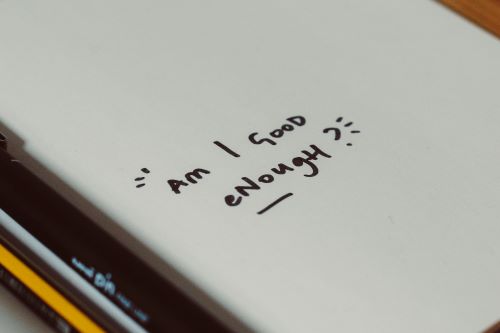
January 21, 2021
By: Dr. Zhen Xu, Clinical Psychologist
Since the beginning of the pandemic, we have been bombarded by news articles, blogs, podcasts, or viral challenges on how to use our time productively during quarantine. Perhaps, you feel the pressure to be a productive employee and/or student, the perfect parent, learn a new language, take virtual cooking classes, start your own side business, and do many other things at once. Feeling overwhelmed? If your answer is yes, you are not alone. Many people reported that they feel immense pressure to maximize every second of their “extra time” for self-improvement and more accomplishments.
The Notion of “Extra Time”
Even though we may have saved time on daily life hassles, traffic, and reduced social activities, the notion of having extra time should be questioned. Amid a global health crisis, there is marked increase in mental health issues including depression and anxiety. Time and energy are expended on adapting to the “new norm” and ongoing changes, which in and of itself can be highly stress-inducing. Routines and life structure are severely disrupted. Furthermore, people must cope with increasing economic stress, uncertainty of the future, fear of illness, grief from loss, in addition to managing increasing responsibilities/roles imposed by the pandemic, such as working from home while caring for family members, sanitizing groceries, or being a parent and teacher at the same time. Even daily life activities such as a trip to the grocery store can feel like going to a battlefield.
Additional stressors may include job loss/instability, legal status issues (e.g., work/study visa application delays), and discrimination for some populations. These daily experiences can be challenging to navigate, which can intensify emotions and drain energy. Overall, we are living in unprecedented times with multiple stress factors, which is far from the ideal setup for high performance, focus, and productivity. Much of our time is likely attributed to coping with these challenges.
Influence of Media Outlets and Social Media
Widespread use of social networking sites and exposure to media outlets also play a significant role in modern life, particularly during the pandemic. Not only are we exposed to news about changing health protocols, recommendations, and updates about world events regularly, but we are also exposed to individual opinions and what appears to be happening in other people’s lives on social media. Numerous DIY projects, home exercising routines, viral challenges, baking frenzies, and new year resolutions for self-improvement during quarantine have appeared online. In fact, people were baking so much during quarantine that certain flour companies were running out of packaging as they scrambled to meet surging demands. Flour and yeast were reported to be frequently out of stock in grocery stores.
The pressure to do these activities and to do them well can magnify, leading to a recent social phenomenon known as “quarantine bragging”. This concept refers to when people try to present a perfect image of themselves by posting images of their quarantine lives (e.g., perfectly baked macaroons, office supplies organized in matching colour sequences, or elaborate workout plans). Perfectionistic self-presentation on social media is not new, yet it seems to be amplified in the pandemic, especially when in-person contact is restricted. Research has shown that people who uses social media the most engage in more social comparison and are associated with negative mental health outcomes including lower self-esteem, loneliness, social anxiety, and decreased empathy1, 2, 3, which are not an ideal combination for productivity.
Work/Life Balance and Boundaries Blurred
As the lockdown continues, working remotely has become more widespread. However, the longer that we are working remotely, the more work/life boundaries tend to get blurred. When home become both living and working/studying spaces, it can become challenging to switch from one environment/mentality to the other. In fact, people working remotely during the pandemic are experiencing more and more burnout symptoms4, yet not taking enough time off to recharge. Many fear that they may lose their jobs if they do not work hard enough. At the same time, people feel that they are expected to work/study more due to not having to spend time on the road or having a life outside of quarantine, and thus it is more challenging to leave work at work. Additionally, in the era of “hustle culture”, being busy and productive may often be equated to being successful. Combining this with blurry work/life boundaries, the pressure to be productive compounds.
So, what can we do when facing mounting pressure to be productive?
In conclusion, it can be extremely challenging and demanding to cope with various stressors during the pandemic. Instead of succumbing to pressure to be more productive, perhaps we need to focus on redefining our priorities and set boundaries to stay on that path.